Butterfly Tears is a collection of short fiction that depicts the experiences of Chinese immigrant women facing the challenges of life in a new country. The stories are set in different parts of China, Canada, and the United States and examine Chinese women’s cross-cultural experiences in North America as well as women’s issues and political discrimination in China. The stories, or parts of stories, set in China give the reader interesting glimpses into events such as the Cultural Revolution and Mao’s death. In the title story, an ancient Chinese legend about two lovers and memories of a violinist who commits suicide during the Cultural Revolution haunt a young woman who fears her husband is having an affair. Leaving her abusive husband, a woman and her young son in A Beaten Mandarin Duck move to New Brunswick where they form a new family with a visiting professor from China. Twin Rivers tells the story of a female engineer who ends up in jail as a result of her love affair with a married man. Feminism and changing male/female relationships form another important theme that runs through many of the stories.
“A witty presentation of Chinese women’s experiences in Maoist China, Canada, and the United States, the women in these stories are haunted by their past in China as they struggle with the challenges of life in a new country. Written with clarity and preciseness, these stories are deliciously symbolic.”
—li zeng, Associate Professor of Chinese Studies, University of Louisville, Kentucky
“As delicate and fine as the most intricately woven filigree.…The nuances of intense and deep-felt passion resonate throughout the text.… Thought-provoking and mysterious.… A work that will best be appreciated by those with an ear and an eye for the unusual and the unique, don’t let this one slip out of your sight too soon, else you might come to regret it.”
—BookPleasures
“Realistic portraits of contemporary Chinese women … whose emotional predicaments are universally resonant.”
—Ricepaper Magazine
“A rare glimpse in to the dark and frightening world of the Cultural Revolution….”
—Her Circle
“Roy’s first attempt at fiction is promising: experimental, thoughtful and best when it delves into women’s emotions.”
—Amerasia Journal

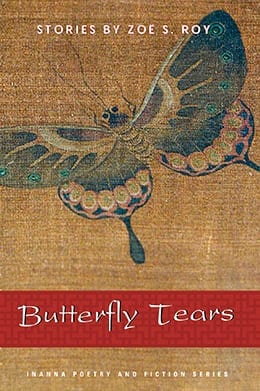

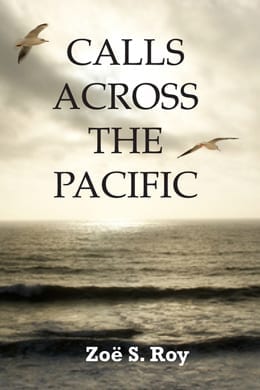
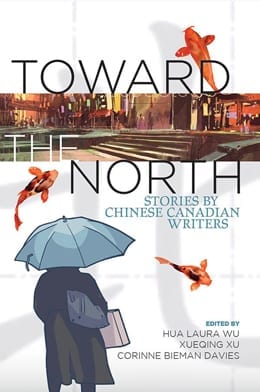
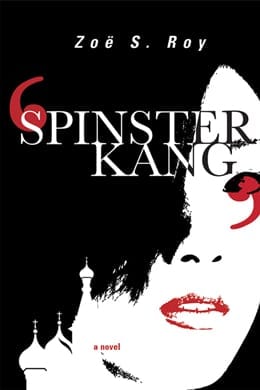
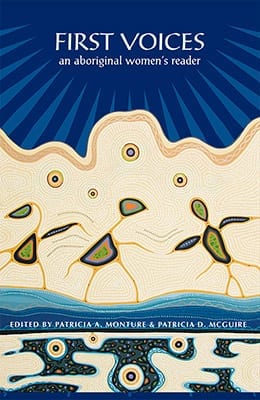

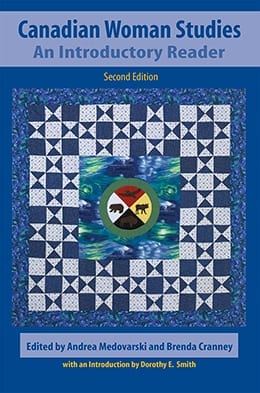
InannaWebmaster –
Asian Review of Books
Reviewed by Melanie Ho
http://www.asianreviewofbooks.com/arb/article.php?article=1068
“In Butterfly Tears, Zoe S. Roy’s first collection of short stories, the author (herself a Chinese immigrant to Canada), must tread a fine balance between writing what she intimately knows and yet finding something new to add to a genre — literature of the Asian immigrant experience ….
With 15 stories in the collection, the book certainly has highlights. The stories are told from a woman’s perspective and to Roy’s credit, some of her female protagonists question the traditional roles of marriage and motherhood, others yet still reject them in favour of a career or for a chance to live their lives as they see fit. “Frog Fishing” juxtaposes a pastime as mundane as frog fishing against the backdrop of Mao’s death. “Twin Rivers” shows heartbreak at its scariest and the consequences that that come with being unable to move on. “Herbs” centers on a woman’s decision not to join her husband once she arrives in the United States: a twist in the ending shows that at least this character is eager to break out of her assigned stereotype….
It is not easy to make the immigrant tale (especially tales of immigrants to Canada or the United States) sound authentic, moving, and new. Although I am not certain Roy entirely managed to achieve this in Butterfly Tears, the collection did spark a smile … Yes, some things are indeed cliche, but when you get it right, it can still feel fresh.”
InannaWebmaster –
The Short Review – May 6, 2010
Reviewed by Sheila Cornelius
http://www.theshortreview.com/reviews/ZoeRoyButterflyTears.htm
Review highlights:
“These haunting tales of unrealised dreams and nostalgic regret read like chapters of a novel about the same character. Within the subgenre of the Asian immigrant experience, the protagonists are female in all but one of the fifteen stories, women whose lives mirror and echo similar experiences.
Moving between China and North American or Canadian cities, married or single, childless or mothers, women’s lives are changed and families divided by China’s Cultural Revolution.
“Revolution is an act of insurrection whereby one class overthrows another.” Mao Ze Dong’s words quoted by the author are the key to understanding the catalyst to this particular migration. In swift transition, an elite class became persecuted outsiders in their own society. In Frog Fishing a teacher suspected of ‘rightist’ tendencies , is saved from an accusation of political disloyalty when a bolder colleague defends her. The story Ten Yuan, the only one with a male main character, conjures the atmosphere of political repression; a young man’s professional future hinges on a chance unguarded remark.
Children become victims of events they can’t control or understand. In Balloons, for instance, schoolgirl Suyun has mud thrown at her and is called a “stinking capitalist”. This is in strong contrast with the status of children of later stories who become the focus of ambitions and a means for their mothers’ to integrate into an adopted culture, although not the sole cause. In A Mandarin Duck, for instance, the abused mother Huidi is awakened to a need to assume responsibility and prompted to learn English when she realizes “she could live in Canada not only for her son, but also for herself”.
Recurrent flashbacks to a former life are ambivalent, both signposts and distractions as the woman comes to terms with her new situation. Glimpses of traumatic post-Mao China depicted in the stories are balanced by memories of idyllic rural scenes. In the title story, Butterfly Tears, set in Montreal, Sunni’s memory is haunted by dreams of her home, and the recall of Chinese legends and music. Her concerns for her son and her husband’s infidelity contrast with childhood security and memory of her grandmother’s stories. In Wild Onions Sha, whose mother died in China, is only able to come to terms with her new life after seeking out a grave in Montreal.…
In stories where transition is a major theme, planes, boats and trains are recurring motifs as a conduit for separation. By contrast, media brings news and hope of reunion; emails and letters, television reports and newspaper notices are points of contact. This is demonstrated most clearly in Balloons, the title a metaphor for the fractured family which is partially enabled to partly reunite. For the most part the time switches are well-managed and the use of symbols and motifs adds greatly to the literary aspect of the stories – exotic details which give a sense of complexity. A good example of this is Wild Onions, where the simple plant sought as a dietary addition becomes a symbolic reminder of China itself.
A few of the stories are less unsuccessful…. Most are compellingly authentic portraits of women who draw strength from the past to cope with uncertain futures.”
Sheila Cornelius is a London-based writer who has worked as an editor in China. As well as reviews she writes magazine articles and is the author of New Chinese Cinema (2002). She also greatly admires the short story form and has tried her hand at writing some.
InannaWebmaster –
Ricepaper Magazine 15.2
Reviewed by David Chau
http://ricepapermagazine.ca/
“THE LIVES OF CHINESE women, shaped by forces beyond their control, is the thematic underpinning of Zoë S. Roy’s debut collection of short stories, Butterfly Tears…. Roy, who was born in China and now lives in Toronto, weaves her scenes out of the everyday drama of ordinary people. Through subtle prose, she tempers the current of oppression running through the lives of her female characters and offsets the book’s emotionally charged scenarios with restraint….
Set in China, Canada, and the United States, the characters negotiate their situations with a mix of cautious optimism and determination. They reconcile what they can and sacrifice when necessary.…
In this book, what seems most notable is how Roy has refreshingly bypassed the tensions of culture shock and differing morals, and created migrant characters who embrace living outside of China. These are individuals who accept rather than resist, adapting to the freedoms and amenities that are now afforded them.
They read Chinese newspapers and Canadian Living, take their children trick-or-treating and feed them stir-fry. After living with her son in a transition house, a cafeteria worker strikes out on her own in “A Mandarin Duck.” The conclusion of her latest relationship, with a man who has a wife and child in China, leads her to learn English so she can “live in Canada not only for her son, but also for herself.”
…With Butterfly Tears, Roy has composed realistic portraits of contemporary Chinese women and succeeded in doing so without overwhelming clichés or melodramas. The result is a compilation of stories about people whose emotional predicaments are universally resonant.”
InannaWebmaster –
her circle ezine – September 1, 2010
Reviewed by Rose Gold
<http://www.hercircleezine.com/2010/09/01/butterfly-tears-stories-by-zoe-s-roy/>
“Butterfly Tears is a collection of fifteen short stories which oscillate between China and North America. Through memories, dreams, dialogue and the sparing use of symbol, these short stories speak of the almost unendurable hardship suffered in the “Cultural Revolution” of Mao’s China as well as the shock and bewilderment experienced by Chinese immigrants in North America as they struggle to come to terms with the new world they have found themselves in and the loss of the old world they have left behind.
The stories are simply told and move effectively and seamlessly through time and place. Throughout the pieces, we are given sometimes glimpses and sometimes enduring images of a lost world, of a new world as seen through the immigrants’ eyes, and of the relationships caught between both worlds. It is intriguing to learn about the Cultural Revolution in China and to see how ruinous and stultifying those years were. At times it is almost hard to believe the extent to which individual freedoms were suppressed. In several stories, public denunciations occur. In “Ten Yuan”, for instance, a man is denounced for telling a joke, and in Twin Rivers, a woman denounces her own husband. The paralyzing fear of the regime is an ever-present undercurrent in these stories, and some scenes seem almost prototypical of Orwell’s 1984.
There is a distinct feminine and feminist perspective in the stories. Many of them deal with women who cast off traditional values – Confucian or Maoist – to begin a new life in North America where they must confront unexpected challenges and troubles in family relationships. In “Butterfly Tears”, for instance, childhood memories of a crazed old man abandoned by his wife, entwine with an old Chinese myth of thwarted love and with disturbing dreams to torment a woman who is about to separate from her husband.
While later stories deal with the conflicts and fortunes in the relationships of Chinese women who struggle to adapt to North American society, many of the early stories take place in Mao’s China. One of these, “Yearning”, is an effective and gripping tale of escape from Communist China, and in “Frog Fishing” a very realistic and sickening denunciation is portrayed. “Twin Rivers”, straddling both worlds, is an effective story of jealousy, revenge and shame, which echoes and reflects an earlier tragedy.
This collection offers the reader many captivating cameos of the Chinese/North American experience as seen through women’s eyes. The stories are believable and direct and do not fail to engage the reader with their weave of dream, memory and often surprising turns of fate. Especially intriguing are the stories and scenes set in Mao’s China, which give us a rare glimpse in to the dark and frightening world of the Cultural Revolution, the totalitarian nightmare which in some way or another haunts every one of these stories.”
InannaWebmaster –
Bookpleasures.com
Reviewed by Lois Henderson
“This collection of seventeen pieces of short fiction is as delicate and fine as the most intricately woven filigree. Telling the tales of women who have emigrated from China to Canada or to the United States, the work reveals the complex nature of having to contend with multicultural, and often contradictory, forces both at home and abroad. Emerging from the Cultural Revolution of Mao Tse-tung, the spirit of the women that is the backbone of these stories shows how, despite the harshest discipline and the most dehumanizing conditions, some women still have the strength to endure the most adverse circumstances, and, rather than becoming embittered by them, can remain sensitive to both their own needs, as well as to those of others. The nobility of these daughters of China recalls the proud heritage from which they have emerged into contemporary Western society.
Born in China, Zoë S. Roy, the author of this collection, was an eyewitness to the red terror under Mao’s regime. The stories have the immediacy of someone who has seen the best and the worst of times – no stranger to the idealism of Communism, she also has a clear-sighted view of the horrors and deprivations of such a regime. Unable to bear the humiliation of public denunciation, several of the minor characters in the stories commit suicide, having been guilty of nothing other than a desire to reap the benefit of their own labor. The upending of an entire society and the morals and integrity of a centuries old way of life are nowhere laid more bare than in the tale ‘Herbs’, which tells of a man’s sexual promiscuity, and his attempt to force such lack of ethics on his wife. She is told by her unscrupulous husband, from whom she later flees, “You just don’t know how to enjoy sexual freedom. Everybody around the world wants this, and you can have it. And your husband doesn’t mind.” But she does, and so do the rest of the major characters in these tales.
The nuances of intense and deep-felt passion resonate throughout the text. The female protagonists are all capable of responding with a sensuality which belies their being robbed of self under the autocratic Communist regime. The freedom to which the women have access in the West is starkly contrasted with the repressiveness of the modern-day East. An exotic flavor, nevertheless, tinges these pages, and the richness of the Orient is omnipresent in the imagery which Roy uses throughout the book.
This is a collection to be treasured and admired. Both thought-provoking and mysterious, Butterfly Tears evokes the strength and endurance of womankind across the cultures. A work that will best be appreciated by those with an ear and an eye for the unusual and the unique, don’t let this one slip out of your sight too soon, else you might come to regret it.”
Lois Henderson has a MA General Linguistics, BA (English) Honors, Higher Education Diploma, Higher Diploma in Library and Information Science – indexer of more than 130 books; editor of dozens of theses and study manuals at university and college level.